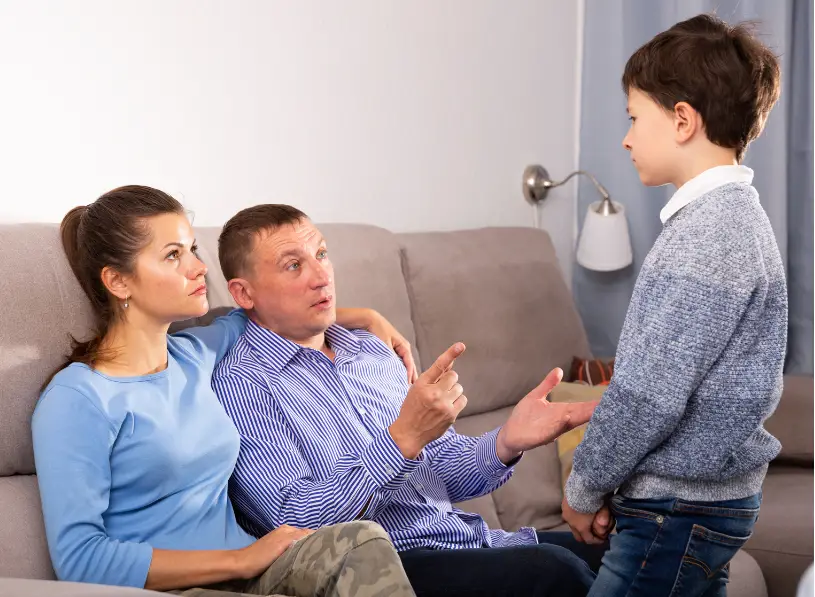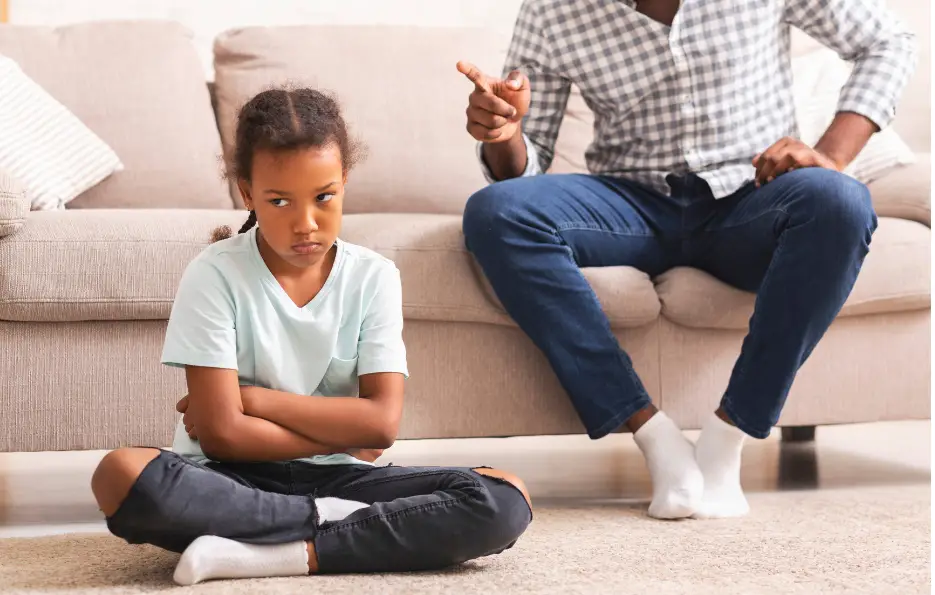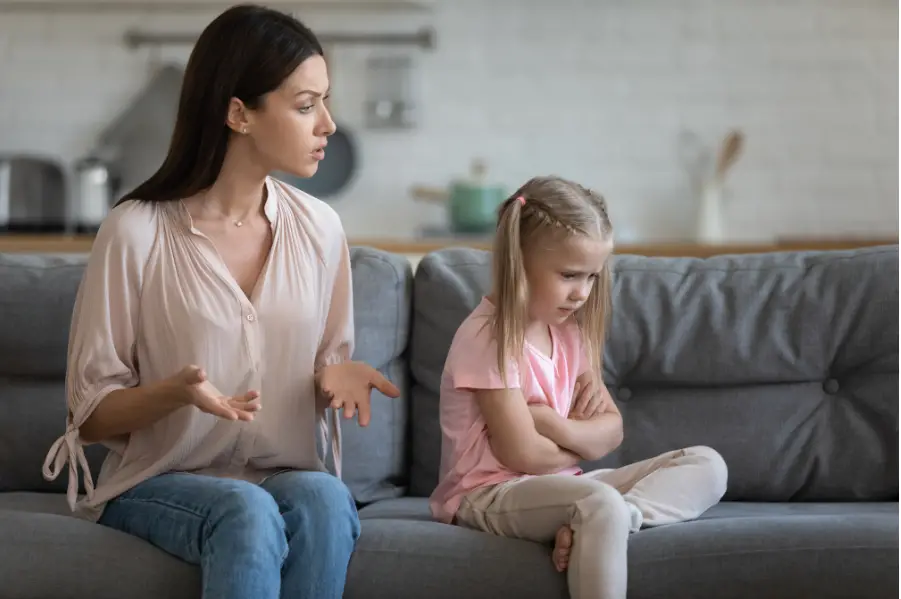
Esther Wojcicki raised two successful CEOs and a pediatrics professor. Amazing, right? Any parent reading this might wonder what parenting techniques she used to raise her children.
Wojicicki’s answer is to refrain from helicopter parenting altogether. Read on to learn how she did it and why your family might benefit from her advice.
What Is Helicopter Parenting?

Helicopter parenting is basically the idea of hovering over children and over-involvement in their lives. Parents who practice this technique often step in to help with tasks the child could do on their own. Helicopter parents are also very quick to criticize mistakes, offer solutions and make decisions for their children.
Helicopter parenting has become increasingly more common over the past few decades, with parents striving to provide their children with as much support and guidance as possible.
While there are certainly benefits to this form of parenting, research suggests that it can lead to several negative outcomes, ranging from increased stress in the family unit to lower levels of achievement in school-age children.
Parents need to realize that it’s okay to help their kids, but not in such a way that they take away their independence and sense of self-worth. That’s why Esther Wojcicki advises parents to refrain from helicopter parenting while still providing the necessary care and guidance that children need.
“You need to realize that when you help your child, you’re disempowering them,” she said. But what does this mean?
Simply put, parents should offer their children the opportunity to problem-solve on their own and learn from mistakes. This helps them build confidence, resilience, and self-reliance—all important ingredients for children’s success. This is because the more you help kids do something, the more reliant they will be on you and the less independent they will become.
Sure, there is nothing wrong with a little guidance and advice, but it should be done in moderation. Parents need to realize that their child’s life is not their own, and they should focus on providing support, encouragement, and teaching self-reliance instead of making decisions for them.
Helicopter parents will only make their children’s lives more difficult, as low self-esteem will diminish each child’s ability to do things. Therefore, moms and dads should refrain from being helicopter parents so that mental health problems can be avoided for their kids, especially in the long run.
For example, if your child comes to you with a problem, it’s important to listen and not jump right in with solutions. Ask them questions about their ideas and let them figure out what works best for them. Give them the tools to make their own decisions and trust that they will be able to handle the task on their own. This way, you’re helping to foster their independence, which is essential for future success.
Even if your child is still in elementary school, it’s important to let them learn essential life skills and make the most out of developmental psychology to avoid the detrimental effects of helicopter parenting.
How Do Kids Usually Feel About Helicopter Parenting?

Even though kids might not understand the term “helicopter parenting,” they will usually recognize the behavior and feel overwhelmed by it.
Children who experience helicopter parenting often feel that their parents are too overbearing, and they may become frustrated or resentful of the constant monitoring. Their experiences, emotional development, and physical health can be compromised when they have overly intrusive parents.
If kids don’t have an opportunity to make their own decisions or take responsibility for their actions, they can also begin to doubt their own abilities and become overly dependent on their parents for guidance and support. This can lead to a lack of motivation, difficulty making decisions, and the inability to cope with failure or disappointment.
Hovering parents only create mental health issues for their kids. An involved parent is different from a helicopter parent, and parents need to learn the difference between these two.
In short, helicopter parenting can be detrimental to children’s development in the long run, so parents must take steps to curb the behavior. Taking advice from Esther Wojcicki is a great way to start, as she provides valuable insight on how to be mindful of your parenting style and strike a balance between providing support and allowing kids to grow in their own way.
“The number one mistake parents make when they’re raising children is that they don’t believe that their kids are capable of doing certain things,” she said. She also added, “Kids don’t have a life where there are no challenges. They have to have challenges.”
Esther also emphasizes that kids need this because this is the scenario in the real world. They won’t always have their parents there to help them, so parents need to allow them to learn from their mistakes and find solutions by themselves.
By striking a balance between providing support and allowing children to make their own decisions, parents can foster independence and resilience in their kids. This will go a long way in helping them become capable, confident adults.
So, instead of hovering over your kids and making decisions for them, focus on creating an environment that allows them to grow and learn life skills independently. The results will be well worth it.
Scenarios Where Helicopter Parenting Is Counterproductive

1. School Projects
It can be tempting to take over a project your child has been assigned, especially if it’s something that you feel confident in tackling. However, when parents do this, they rob their kids of the chance to learn and gain experience on their own. Allow them to struggle a bit and come up with solutions by themselves.
2. Social Interactions
Helicopter parenting can also be counterproductive when it comes to social interactions. Constantly hovering over your child will send the wrong message and make them feel they are incapable of making decisions or handling situations on their own. Allow them the freedom to make mistakes and learn from them.
3. Extracurricular Activities
As your child grows, they may be interested in participating in various extracurricular activities. If you’re always hovering over them and trying to dictate how they should act or what decisions they should make, this can inhibit their growth and development. Provide support and guidance, but also give them a chance to make their own choices.
4. Academic Performance
It’s normal for parents to want their kids to do well in school. However, hovering over them or pressuring them too much can have a negative effect, such as low self-esteem. Let your child handle the pressure of exams on their own, as it will help them develop the skills necessary to cope with these situations in the future.
5. Career Choices
When choosing a career path, helicopter parenting is especially counterproductive. Allow your child the time and space to explore their interests and make decisions on their own. While your guidance is important, they should ultimately be the ones responsible for making choices that will impact their future. Otherwise, they may end up feeling lost and without direction.
Why Is Kindness Very Important in Parenting?

It might seem obvious, but it can’t be overstated: kindness is essential to good parenting.
Showing kindness to your children teaches them how to treat others with respect and compassion. It also helps foster a deeper connection between you and your child, which will be invaluable as they grow up.
It’s important to remember that the way we treat our children can have a lasting impact on their lives. If we’re unkind or dismissive, they may internalize these lessons and carry them into adulthood. On the other hand, showing them kindness and respect can help build their confidence, encourage them to make healthy decisions, and promote positive relationships with others.
Kindness is not only about showing affection or praise; it also involves actively listening to your child, validating their feelings and experiences, and providing them with support and guidance.
In addition to being kind to your child, it’s equally important to be kind to yourself as a parent. Parenting can be stressful and overwhelming at times, so it’s important to take a step back and practice some self-care. Doing so will not only benefit you, but it will also help provide your child with a healthy example of coping with difficult emotions constructively.
Some ways of manifesting kindness in parenting include expressing appreciation for your child and their efforts, empathizing with their emotions, and providing them with plenty of love and support. Being kind doesn’t mean you can’t discipline or set boundaries; rather, it means showing your child respect and understanding even when things are difficult.
Kindness is the foundation of a healthy parent-child relationship, and its importance cannot be overstated.
How Can Parents Teach Their Kids Kindness at a Young Age?
As parents, teaching our kids about kindness is one of the most important things we can do. Here are some tips for teaching kind behavior to your child:
1. Model Kindness
Research from experts suggests that one of the most important things parents can do is to demonstrate kindness and respect to their children when they are young. This helps children understand how to interact with others, and one of the best ways to accomplish this is to model kind behavior yourself.
Show your children examples of good behavior in how you treat them, your friends, family members, and strangers. When something goes wrong, or you fail, don’t get frustrated or angry—use it as a learning opportunity and let your children see how you handle difficult situations with grace.
Additionally, talking openly about kindness with your kids has been shown to be beneficial in helping them internalize its importance. Mention how kindness affects people positively, discuss real-life stories about times when kind behavior made a huge difference, and brainstorm ways your family could show more kindness in their everyday lives.
Doing these things will create an environment where everyone develops into kinder adults.
2. Talk About Feelings
Parents are often the first teachers that impressionable young kids learn from; this makes their words, actions, and interactions especially important.
Talking about feelings is a great way for parents to demonstrate kindness to their children at a tender age. Expressing how an emotion makes you feel can make kids more attuned to their own feelings and more able to cope with adverse emotions when they come.
Aside from just allowing them to articulate their feelings, being an active listener and understanding how the little ones actually feel will strengthen the bond between parent and kid.
When a child feels heard and understood, it opens up opportunities for meaningful conversations that could lead kids to better understand why certain decisions should be taken or avoided.
3. Show Empathy
Empathy is a necessary trait to model for our kids when they are young. Studies after studies have shown that children are highly impressionable during their developmental years, and being able to demonstrate empathy towards your kids from a young age can have a lasting impact on them.
By expressing understanding and sympathy for your children if they make mistakes or have been hurt somehow, it instills the notion that everyone makes mistakes and should be forgiven. It also allows a child to develop relationships based on trust and mutual understanding with people around them as they grow older.
4. Have Them Show Appreciation for Others
Kids can be taught to appreciate people around them from a young age. Simple acts like saying “thank you” or giving a hug are small but meaningful gestures demonstrating kindness and appreciation.
Encouraging your kids to thank those around them for their help or efforts can significantly impact their relationships with other people.
5. Reward Kind Behavior
Rewarding kind behavior is a great way for parents to model kindness to their children. By rewarding kind acts, you can reinforce positive behavior and motivate your child to continue showing kindness and caring towards others.
Try to focus on positive reinforcement rather than punishing unkind or negative behaviors.
For example, if your child was especially polite and courteous while speaking with another person, take the opportunity to quietly express your appreciation in a non-intrusive manner.
Another way to reward type behavior is by offering verbal praise and encouragement. Doing this not only shows that you value their actions but also serves as a reminder of how powerful those small, everyday moments are when it comes to creating positive change in the world.
When Can Helicopter Parenting Be Useful?
Despite the negative connotations associated with it, there are some instances in which helicopter parenting can be useful.
For example, if a child is facing difficulties in school or struggling with social relationships, helicopter parents may need to take an active role in helping them. Strict parents can also benefit from helicopter parenting in some situations (i.e., family camping trips in the woods) because it can keep their children safe and on the right track.
Ultimately, it’s important to remember that every parent-child relationship is unique and that what works for one family may not work for another. If you feel like your approach is getting in the way of your child’s growth and development, be open to making changes to ensure their well-being. After all, that’s what being a parent is all about.
Bottom Line
Helicopter parenting is a parenting style focused on controlling children’s development and behavior.
While it can be beneficial to be helicopter parents in some situations, it is generally seen as a negative approach to parenting since it creates an environment where children lack independence and do not learn how to make their own decisions.
At the end of the day, you know your child best, so trust your instincts when parenting them. With enough patience and understanding, you can find ways to support your child without hovering or trying to control every aspect of their life.


Leave a Reply